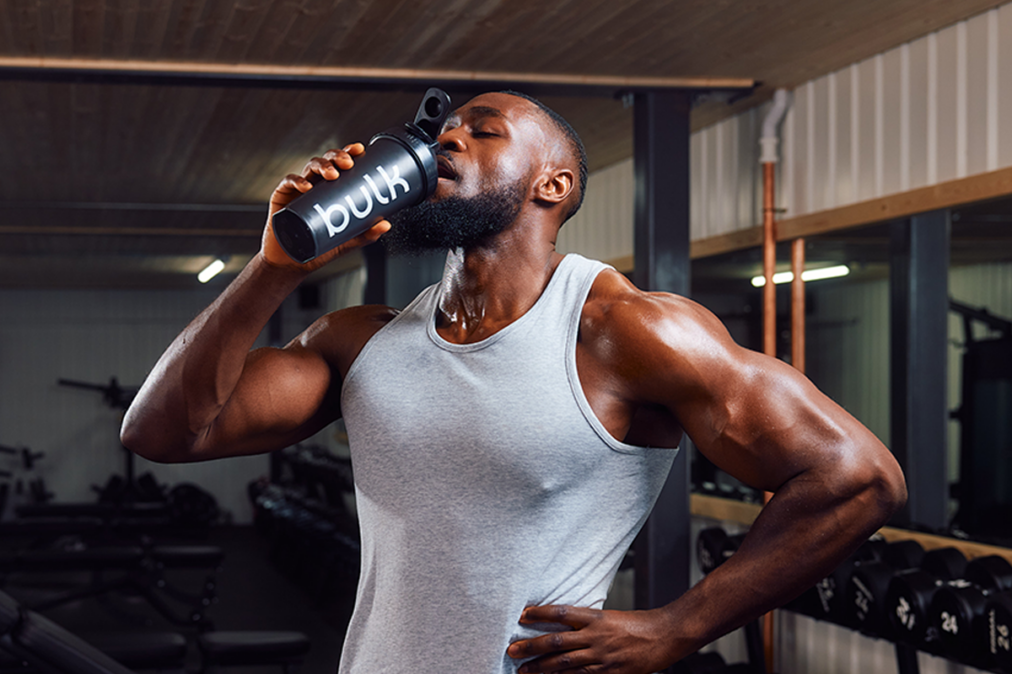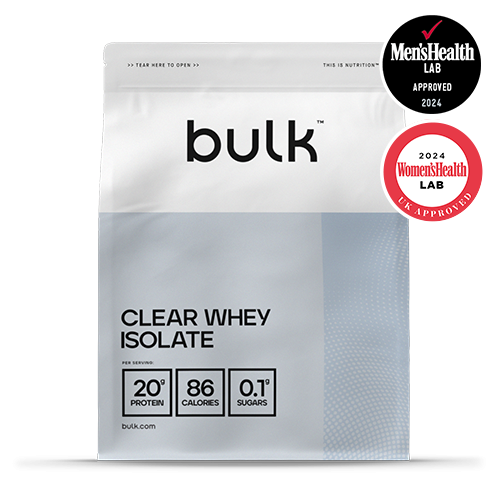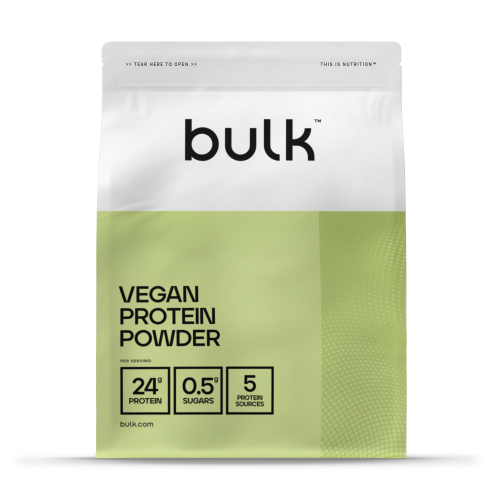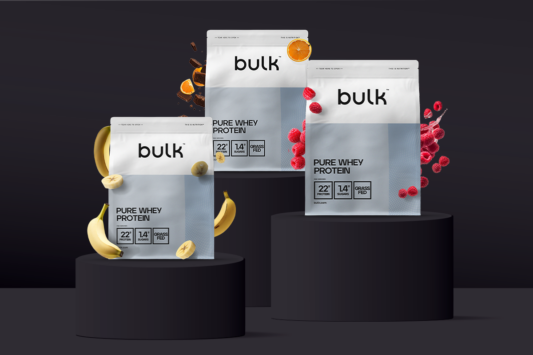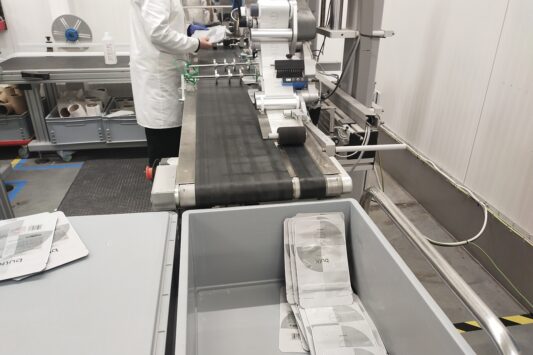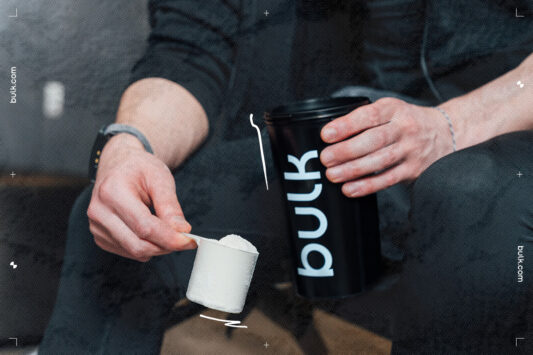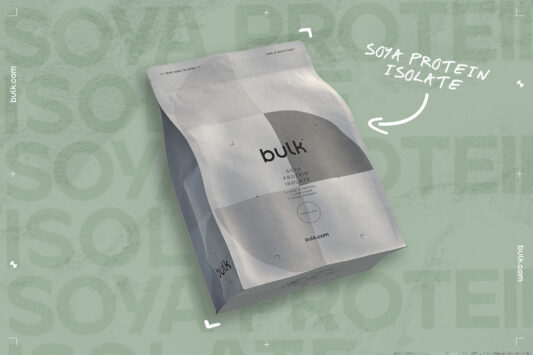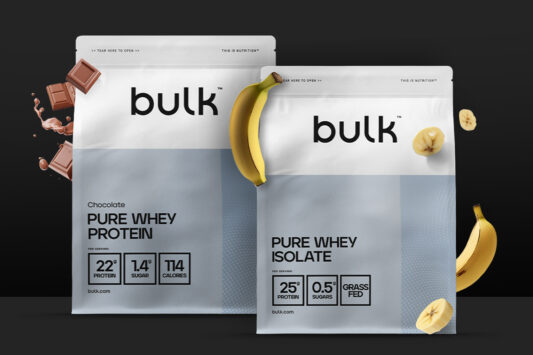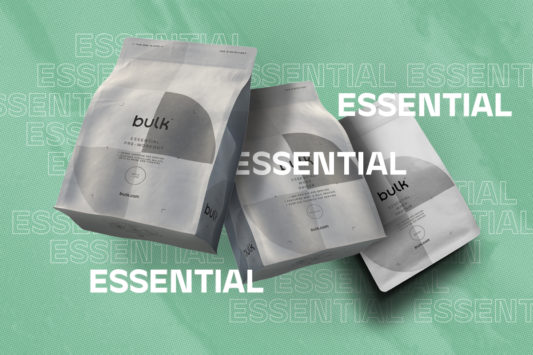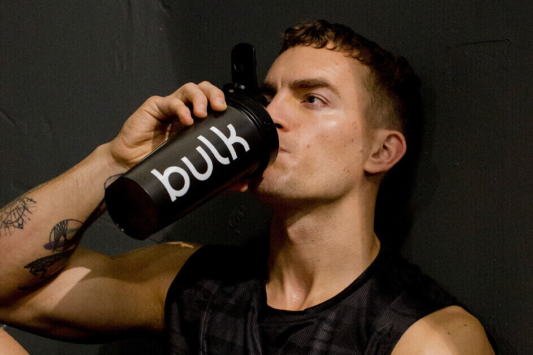If you’re in any way familiar with the nuances of nutrition then you already know the answer to “is protein powder good for you?” isn’t a simple yes or no.
It’s all about why you’re taking it and what you want to achieve. So, with that annoyingly vague setup, let’s dive in and break it down.
Is protein powder good for you?
Again, it depends why and how you are using it. With that said, we do know” a HPD (high protein diet) has not been reported to have adverse effects on health in terms of bone density or renal function in healthy adults” [1]. So that’s a positive start.
Remember, when we talk about protein powder being good for you, we’re referring to its use as a supplement to a diet packed with whole foods. Protein powder is great, but it’s not meant to replace real meals.
We know that protein powder stimulates muscle growth in active individuals. In a 2018 review in the British Journal of Sports Medicine, weight-training adults who took protein supplements experienced significant increases in strength and muscle size in just six weeks.
Another study also found that “resistance exercise, and protein ingestion both stimulate muscle protein synthesis (MPS) and are synergistic when protein consumption occurs before or after resistance exercise.” [2]
Based on these studies, it’s clear that protein powder is super effective when paired with resistance training. So, yes, protein powder is good for you in terms of muscle building and maintenance.
Having a protein shake helps kickstart muscle protein synthesis, which is just a fancy way of saying it helps build and repair those muscle fibres you tear up during weightlifting sessions. So, keep lifting and shaking.
Why is protein good for you?
Protein is made up of building blocks called amino acids and is essential for building and maintaining muscle. It’s crucial for synthesising the proteins that make up our skin, muscles, organs, blood, and enzymes. Proteins also help our cells communicate with each other.
Without protein, our bodies wouldn’t function properly, and we couldn’t survive. So, yes, protein is not just good for you—it’s essential.
The star of this particular amino acid show is leucine, which is key for muscle building. Since our bodies can’t produce leucine, we need to get it from our diet. Leucine jumpstarts muscle protein synthesis by activating the mTOR pathway, a protein complex that senses nutrients and manages protein production.
One such study found that adding leucine to supplements boosts the mTOR signalling, which helps build muscle, and reduces tyrosine and other essential amino acids in muscles and blood. This increases protein synthesis and slows down protein breakdown, improving overall muscle growth and maintenance. [3]

Muscle hypertrophy
Combining resistance training with a high-protein diet is the key to gaining muscle mass. So, if you’re looking to bulk up, protein powder is a great addition to your routine.
And as we’ve already established, rapidly digested proteins that contain high proportions of essential amino acids (EAAs) and adequate leucine, are most effective in stimulating MPS. [4]
With regular practice, resistance exercise can lead to gains in skeletal muscle mass by means of hypertrophy.
Evidence points to a higher protein intake in combination with resistance exercise as being efficacious in allowing preservation, and on occasion increases. Dietary proteins with a full complement of essential amino acids and high leucine contents that are rapidly digested are more likely to be efficacious in this regard. [5]
And what is whey protein powder but a dietary protein supplement containing leucine that is rapidly digested. Job done.
Prevention of muscle loss
Protein powder is beneficial for preventing muscle loss because as well as supporting muscle building. It provides an effective means of maintaining muscle mass through a positive muscle protein balance. [6]
The study suggests that most people who exercise should aim for a daily protein intake of 1.4-2.0 grams per kilogram of body weight to prevent muscle loss and to maintain lean body mass.
Convenience
Protein powder is a wonderfully convenient option if your protein goals are relatively high and you don’t want to spend your entire day mainlining chicken.
It’s quick to make a shake, easy to consume on the go, and it’s a high protein source that’s usually low in fat and sugar but always be sure to check nutrition labels.
If you’ve got a busy day ahead, you can easily carry a scoop or two of powder with you to mix up whenever you need a protein boost without it taking up much space in your bag.
Versatility
This is where you can get really creative. Sure, shakes are great, but if you fancy some variety, your options are pretty endless. Add a scoop to your morning oats or yoghurt with some berries, nuts and seeds and you have a highly satiating breakfast that’s likely to keep you full all morning.
You can even use it as a part flour replacement in baking and make high-protein brownies, muffins or cookies. The world is your protein oyster.
Is protein powder good for you to lose weight?
Protein powder can help you reduce body fat while keeping your muscle gains intact. Your body weight includes fat, muscle, water, and bone. Bigger muscles weigh more, and lifting heavy can increase bone density, making your bones heavier too.
So the important thing is not to stress if the scale goes up when you’re resistance training— it doesn’t necessarily mean you’re gaining fat.
Several clinical trials have found that consuming more protein than the recommended dietary allowance not only reduces body weight (BW), but also enhances body composition by decreasing fat mass while preserving fat-free mass (FFM) in both low-calorie and standard-calorie diets. [7]
Keen to know more? We take a deeper dive into this topic in our blog around protein powder for weight loss.
Is protein powder good for you if you don’t work out?
If you’re not hitting the gym, chances are your regular diet is already covering your basic protein needs for bodily functions. The UK government recommends about 55.5g per day for men and 45g for women, which might sound low to fitness buffs, but is adequate for non-active lifestyles.
For most non-exercising adults, one protein shake alone could cover nearly half of your daily protein needs. So, unless you’re aiming to bulk up or maintain serious muscle, whole food sources are where it’s at. They pack extra vitamins and minerals that protein powder can’t match.
That said, protein shakes can be a game-changer for older folks struggling to eat enough protein. If their appetite isn’t what it used to be, a shake can be easier to get down.
Bonus tip: if you’re not hitting the gym yet, it might be time to give it a go. Inactive adults experience a 3% to 8% loss of muscle mass per decade, accompanied by resting metabolic rate reduction and fat accumulation.
Benefits of resistance training include improved physical performance, movement control, walking speed, functional independence, cognitive abilities, and self-esteem. Plus you might just find you love it [8].

FAQs
Is vegan protein powder good for you?
Vegan protein powder can be your best friend, especially if dairy or lactose gives you grief. It helps you hit those protein goals without the GI drama.
But if you’re all about those muscle gains, make sure your vegan protein has a complete amino acid profile, especially leucine. Leucine is the muscle-building MVP, and since it’s not always in vegan sources, double-check that it’s been added.
Aim for 2-5g of leucine per serving to fire up those mTOR pathways, boost muscle protein synthesis and keep crushing those workouts.
Is whey protein powder good for you?
Absolutely, whey protein powder is naturally packed with leucine, it digests quickly and is ideal for muscle building. Just 2-5g of leucine per meal can kickstart the mTOR pathways and stimulate muscle protein synthesis.
But remember, whey protein is best used as a supplement alongside a diet rich in whole foods to help you smash your protein goals.
Is it good to drink protein powder everyday?
It really depends on your goals. If you’re looking to pack on muscle mass with a calorie surplus, then having a daily shake is a quick and convenient way of hitting your protein targets.
If your focus is fat loss, you might get all the protein you need from well-planned meals with whole food protein sources that keep you fuller for longer.
Of course, life happens. On those crazy busy days or when you’re out and about, a protein shake can be your best mate. So, use it as needed, but it doesn’t have to be an everyday thing.
Can you have a protein shake for breakfast?
So, should you have a protein shake for breakfast?
Starting your day with a balanced breakfast of real food is always the best option, but adding a scoop of protein powder to your oats, yoghurt or pancakes can help keep you fuller for longer. It also bumps up your protein intake.
If you’re not a breakfast person or always on the go, then yes, a protein shake is a fantastic option to kickstart your day with a protein boost. Plus, spreading your protein intake throughout the day maximises those gains. Shake it up and get after it.
Related articles
Different Types of Protein Powder
How much protein do you need to build muscle?
Which Bulk Protein is Best?
Benefits of collagen powder
How is protein powder made?
How much protein can your body absorb?
